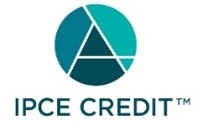March 7, 2024: 13th Armand M Nicholi Jr MD and Ingrid Nicholi Lecture in Psychiatry: Brain Imaging Studies on Pain and its Modulation (Northern)
Pain is a complex sensory and emotional experience associated with actual or potential tissue damageor described in terms of such damage. It is a fundamental and universal human experience, often signaling the presence of injury or illness.
This lecture will introduce the brain circuits involved in pain perception and modulation and explore the role of expectancy in modulating pain. It will discuss the application of these findings to improve pain management.
Target Audience
This program is intended for: Psychiatrists, Psychologists, Fellows, Residents, Interns and Nurses
Learning Objectives
Upon completion of the activity, participants will be able to:
Describe the brain circuits associated with experimental and chronic pain
Discuss how pain experiences can be modulated by expectancy.
Utilize the findings to enhance the management of chronic pain
SPEAKER(S)
Jian Kong, MBBS, MS, MPH
Professor at Harvard Medical School
Director of the Neuroimaging of Mind-Body Interaction and Treatment Laboratory in the Department of Psychiatry, Massachusetts General Hospital
Jian Kong, MBBS, MS, MPH, is a Professor at the Department of Psychiatry, Massachusetts General Hospital (MGH),Harvard Medical School. Currently, he is the director of the Neuroimaging of Mind-Body Interaction and Treatment Laboratory in the Department of Psychiatry, Massachusetts General Hospital(https://nombit.mgh.harvard.edu/),and the principal investigator of several NIH funded projects.
He is also an editorial board member of several journals, and an ad hoc reviewer for more than110journals.His research interests focus on pain perception and modulation, placebo and nocebo effects, the brain pathophysiology of chronic pain(chronic low back pain, migraine, fibromyalgia, knee osteoarthritis), depression, cognitive decline, autism spectrum disorder, insomnia, and stroke; and how alternative medicine methods (such as acupuncture, mind-body interventions(Tai Chi and Baduanjin) and imagery) and neuromodulation methods (transcutaneous auricular vagus nerve stimulation and transcranial direct current stimulation)can modulate brain circuitry in these disorders using multidisciplinary brain imaging tools.
Dr. Kong holds equity in startup companies (Massachusetts Neuro Technology Inc, Brain Thrive Technology LLC) and a patent on applying auricular vagus nerve stimulation
Available Credit
- 1.00 AMA PRA Category 1 Credit™
This activity has been planned and implemented in accordance with the accreditation requirements and policies of the Accreditation Council for Continuing Medical Education (ACCME) through the joint providership of IHP and Massachusetts General Hospital. IHP is accredited by the ACCME to provide continuing medical education for physicians.
IHP designates this Enduring activity for a maximum of 1.00 AMA PRA Category 1 Credit™. Physicians should only claim credit commensurate with the extent of their participation in the activity.
- 1.00 Nursing Contact Hours
Massachusetts General Laws, Chapter 13, sections 13, 14, 14A, 15 and 15D and Chapter 112, sections 74 through 81C authorize the Board of Registration in Nursing to regulate nursing practice and education.
This program meets the requirements of the Massachusetts Board of Registration in Nursing (244 CMR 5.00) for 1.00 contact hours of nursing continuing education credit. Advance practice nurses, please note: Educational activities which meet the requirements of the ACCME (such as this activity) count towards 50% of the nursing requirement for ANCC accreditation.
- 1.00 Participation
This course allows other providers to claim a Participation Certificate upon successful completion of this course.
Participation Certificates will specify the title, location, type of activity, date of activity, and number of AMA PRA Category 1 Credit™ associated with the activity. Providers should check with their regulatory agencies to determine ways in which AMA PRA Category 1 Credit™ may or may not fulfill continuing education requirements. Providers should also consider saving copies of brochures, agenda, and other supporting documents.
- 1.00 Psychologists CE Credit
Continuing Education (CE) credits for psychologists are provided through the co-sponsorship of the American Psychological Association (APA) Office of Continuing Education in Psychology (CEP). The APA CEP Office maintains responsibility for the content of the programs. MGH Institute of Health Professions designates this activity for 1.00 CE credit.
Accreditation
In support of improving patient care, MGH Institute of Health Professions is jointly accredited by the Accreditation Council for Continuing Medical Education (ACCME), the Accreditation Council for Pharmacy Education (ACPE), and the American Nurses Credentialing Center (ANCC) to provide continuing education for the healthcare team.
1.00 Physicians
MGH Institute of Health Professions designates this live activity for a maximum of 1.00 AMA PRA Category 1 Credits ™. Physicians should claim only credit commensurate with the extent of their participation in this activity.
1.00 Nursing Contact Hours
MGH Institute of Health Professions designates this activity for 1.00 contact hours for nurses.
1.00 Social Workers
 As a Jointly Accredited Organization, MGH Institute of Health Professions is approved to offer social work continuing education by the Association of Social Work Boards (ASWB) Approved Continuing Education (ACE) program. Organizations, not individual courses, are approved under this program. State and provincial regulatory boards have the final authority to determine whether an individual course may be accepted for continuing education credit. MGH Institute of Health Professions maintains responsibility for this course. Social workers completing this course receive 1.00 clock hours for continuing education credits.
As a Jointly Accredited Organization, MGH Institute of Health Professions is approved to offer social work continuing education by the Association of Social Work Boards (ASWB) Approved Continuing Education (ACE) program. Organizations, not individual courses, are approved under this program. State and provincial regulatory boards have the final authority to determine whether an individual course may be accepted for continuing education credit. MGH Institute of Health Professions maintains responsibility for this course. Social workers completing this course receive 1.00 clock hours for continuing education credits.
1.00 IPCE Credit
 This activity was planned by and for the healthcare team, and learners will receive 1.00 Interprofessional Continuing Education (IPCE) credit for learning and change.
This activity was planned by and for the healthcare team, and learners will receive 1.00 Interprofessional Continuing Education (IPCE) credit for learning and change.

 Facebook
Facebook X
X LinkedIn
LinkedIn Forward
Forward